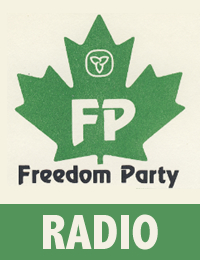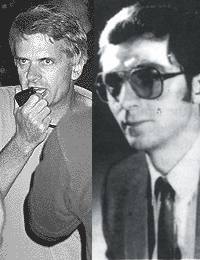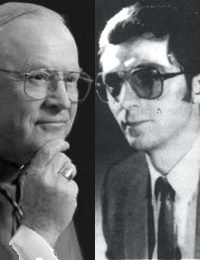 AUDIO – DESCRIPTION:
AUDIO – DESCRIPTION:
On July 14, 1986, Mr. Justice Dennis O’Leary of the Ontario Divisional Court issued his decision with respect to an Ontario regulation that required government funded schools to open or close each school day with religious exercises consisting of the reading of the Scriptures or other suitable readings and the repeating of the Lord’s Prayer or other suitable prayers. Five families in Sudbury, Ontario, had challenged the constitutionality of the provision under the Canadian Charter of Rights and Freedoms, which had been adopted only 4 years earlier. Having lost at trial, the families appealed to the Divisional Court. Divisional Court Justice O’Leary dismissed the appeal. He held that (to quote Ontario’s Court of Appeal):
“…the religious exercises prescribed by s. 28(1) did not infringe the guarantee of freedom of conscience and religion provided by s. 2(a) of the Charter. Alternatively, he held that, if the Charter freedom was infringed, the infringement was justifiable under s. 1 of the Charter which provides:
1. The Canadian Charter of Rights and Freedoms guarantees the rights and freedoms set out in it subject only to such reasonable limits prescribed by law as can be demonstrably justified in a free and democratic society.
He was of the view that the inculcation of morality was a proper educational object and that morality and religion were intertwined. If this resulted in any infringement on minority religious beliefs, it was not substantial. He pointed out that the religious exercises did not have to be Christian and, except in the case of non-believers, could be consistent with the Charter which, in its preamble, recognizes “the supremacy of God and the rule of law”.
London, Ontario’s AM980 news reported that Justice O’Leary’s decision essentially meant that the Charter’s power to defend the rights and freedoms that it lists were largely meaningless.
NOTE 1: The families later appealed the Divisional Court’s decision to Ontario’s Court of Appeal. On September 23, 1988, Ontario’s Court of Appeal granted the appeal, finding the regulation to be unconstitutional. From the decision of the Court of Appeal for Ontario:
On its face, s. 28(1) of the regulations infringes the freedom of conscience and religion guaranteed by s. 2(a) of the Canadian Charter of Rights and Freedoms. The recitation of the Lord’s Prayer, which is a Christian prayer, and the reading of the Scriptures from the Christian Bible imposes Christian observances upon non-Christian pupils and religious observances on non-believers. The right to claim exemption from religious exercises conferred by s. 28(10), (11) and (12) does not save the regulation. Section 28 imposes on religious minorities a compulsion to conform to the practices of the majority, and the evidence in this case supports this view. Moreover, the exemption provisions discriminate against religious minorities. Harm to individual pupils need not be proved by those who object to s. 28(1). The denigration of minorities’ freedom of religion and conscience by the operation of s. 28(1) constitutes an infringement of s. 2(a) of the Charter which is not insubstantial or trivial.
The regulation is not justified under s. 1 of the Charter, as the purpose of s. 28(1) is religious. Even if s. 1 applied, the Charter infringement cannot be justified, because s. 28(1) fails to impair the appellants’ freedom under s. 2(a) as little as possible. There are less intrusive ways of imparting educational and moral values than those provided in s. 28.
NOTE 2: This recording includes two reports from AM980 that occurred on the same day. For the purposes of dating this archive entry, it is assumed that Metz’s comment was reported one day after the decision was rendered.
Complete Recording:
Continue reading »
 AUDIO – DESCRIPTION:
AUDIO – DESCRIPTION: AUDIO – DESCRIPTION:
AUDIO – DESCRIPTION: AUDIO – DESCRIPTION:
AUDIO – DESCRIPTION: